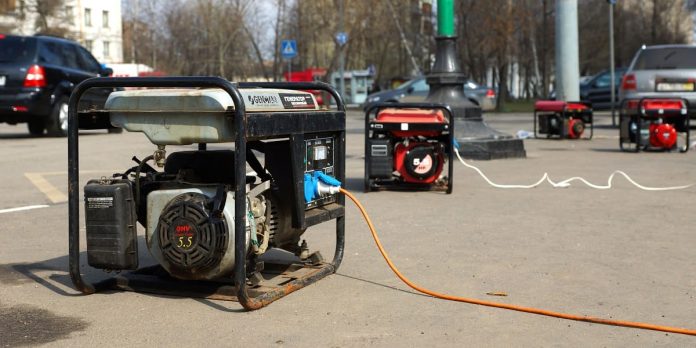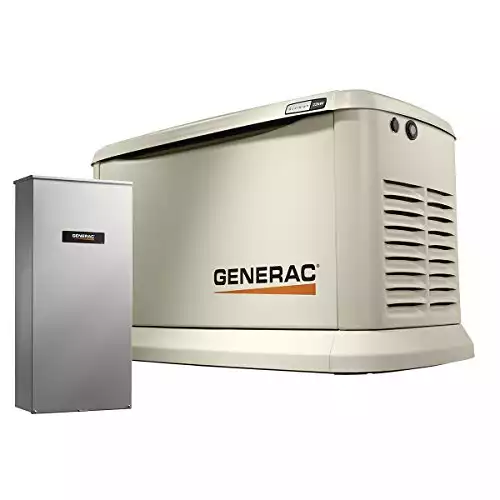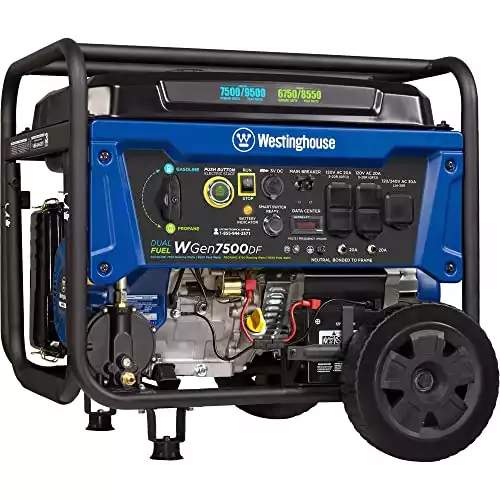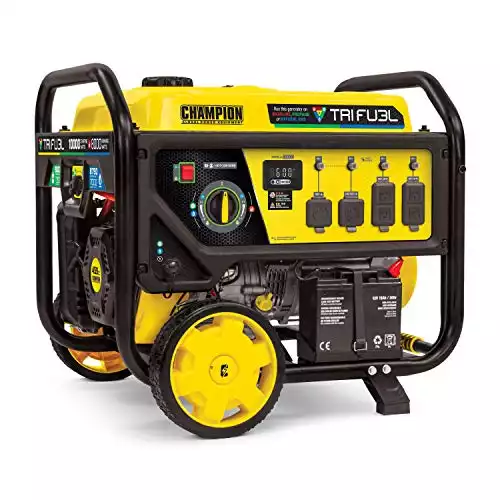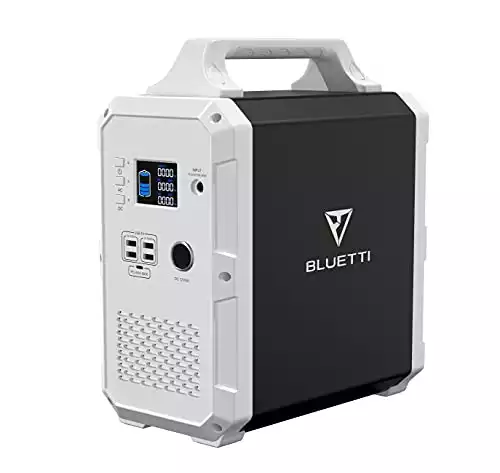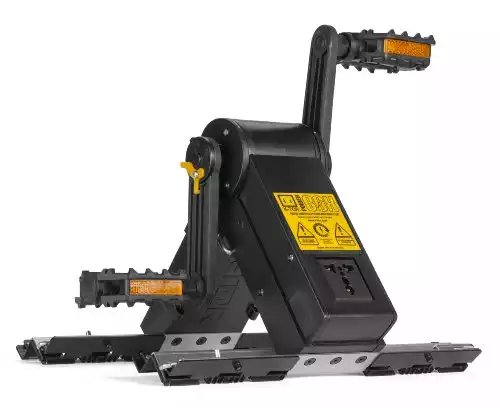A generator is practically a must-have in a world so dependent on electricity and technology. Luckily there are plenty to choose from. Understanding how they all differ from one another is another story.
In this article, we’ll tell you everything you need to know to choose the right generator for your needs.
Sub-Types of Generators
Regardless of what kind of generator you purchase, it will fall into one of these four categories.
Conventional Portable Generators
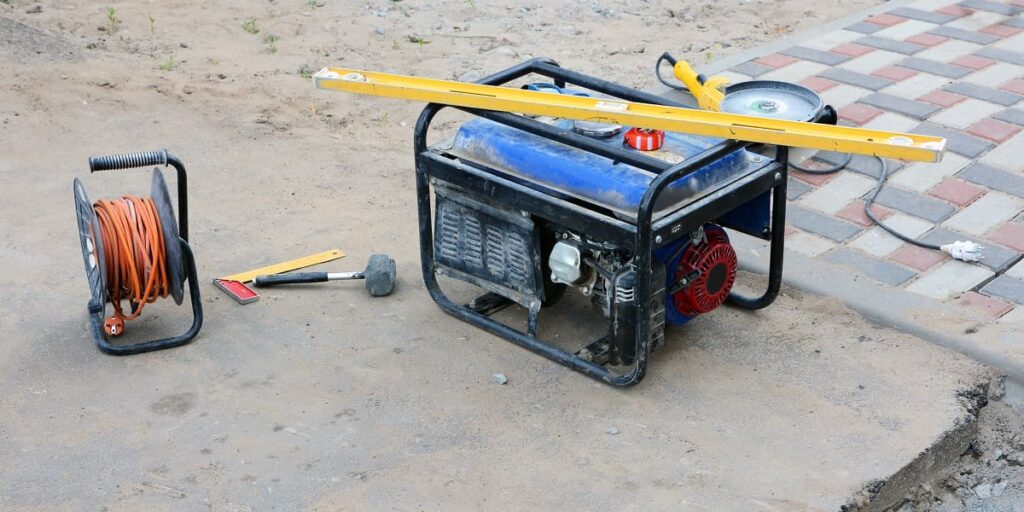
As the name implies, these generators can be moved from place to place when you need power. While they come in various sizes and utilize various power sources, they all work pretty much the same.
An internal combustion engine converts mechanical energy into electricity. The generator engine accomplishes this by rotating a shaft connected to a mechanical alternator. As a result, the generator distributes an alternating current to its sockets.
Portable generators use gasoline or diesel as a fuel source. Additionally, some—but not all—need to be grounded for safety reasons.
Conventional generators run at approximately 3600 rpm but cannot maintain this speed throughout their run time. This causes a great deal of fluctuation in the output voltage and frequency, which can damage some electronic devices.
Portable generators can produce up to 20k watts of power and can often be bulky and heavy even though they’re considered portable.
Inverter Generators (Digital Generators)
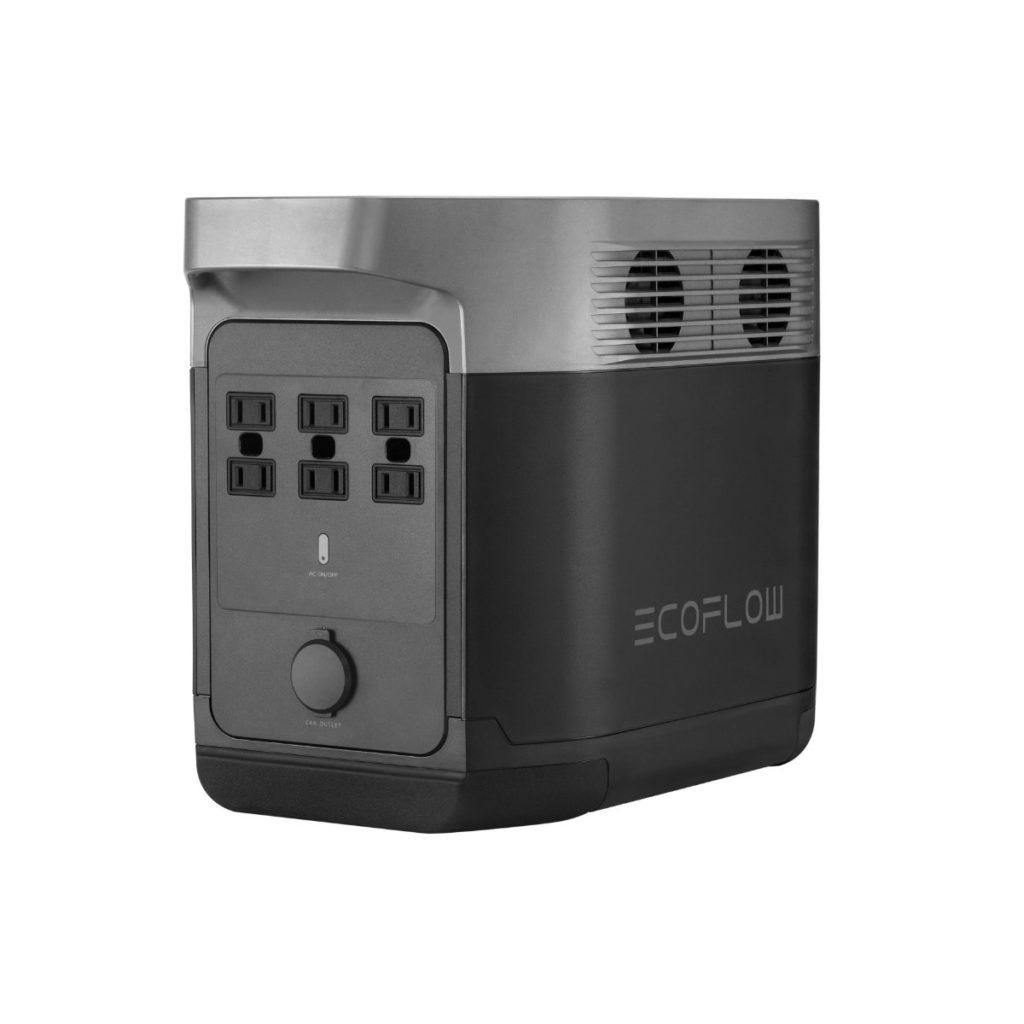
Inverter generators transfer AC currents to DC currents and then invert them back again. They are cleaner, more consistent, and much more efficient than traditional generators.
In gas-powered generators, the engine constantly throttles up or down, causing a great deal of fluctuation in the power current. On the other hand, inverter generators create a “sine wave power,” which has minimal harmonic distortion.
Although fairly new, their reputation for producing clean and stable power makes them a wise investment for electronic devices, such as computers, laptops, tablets, or televisions.
Inverter generators prevent power surges that would otherwise damage your electronics. These units traditionally run on gasoline, solar, or wind energy.
Standby Generators
Standby generators are permanently affixed to a concrete pad and are usually professionally installed. They typically use diesel, natural gas, or sometimes biofuel.
Standby generators directly attach to your electric panel and are paired with an automatic transfer switch (ATS). When a power outage occurs, the ATS disconnects from your main power grid and prompts your standby generator to kick in within seconds.
Once your power returns, the ATS automatically disengages from your generator and reconnects to your power grid. This convenient application takes all the work and hassle out of generators.
Hybrid Generators
Continually evolving technology has created a new era of hybrid generators that run on two to three different types of fuel. Hybrid generators use both the fuel from conventional generators and a renewable power source. This means they usually incorporate a fully automated battery system.
They are more environmentally friendly, quieter, and more fuel efficient.
Non-Renewable Fuels
Generators come with multiple fueling options, and it’s hard to know which one to choose when your mechanical knowledge is limited. So here’s some information that will help.
Gasoline Generators
Gasoline generators function by converting fuel to kinetic energy. The turbine within the generator then converts kinetic energy into mechanical energy and then electrical energy.
Gasoline generators are the most common and convenient form of all portable generators. Gas is a relatively inexpensive fuel compared to other sources, and it’s most often readily available.
These generators are ideal for individuals or businesses looking for a reliable and efficient backup power supply. If you’re considering a gasoline generator, check out our guide to gas generators.
On the downside, gasoline has a short shelf life, so storing fuel en masse is not viable. Many people add fuel stabilizers to their generators to prolong their life and prevent them from becoming unusable.
Read: How to store gasoline
Furthermore, gasoline burns significantly hotter than other fuels, placing a higher strain on the generator’s internal components. Because of this, they require more frequent maintenance and have shorter longevity.
Pros:
- Affordable
- Quieter than diesel
- Portable and lightweight
- Convenient, reliable, and efficient
Cons:
- High fuel usage
- Frequent maintenance
- Higher emissions
- Shorter lifespan
Diesel Generators
With a diesel generator, air enters a cylinder and a piston compresses it. This process heats the air while simultaneously introducing a mist of diesel fuel, which ultimately causes a tiny explosion that releases energy.
That energy turns a shaft that rotates attached magnets, generating an electrical supply.
While diesel generators are much simpler than gasoline generators, their exhaust is highly toxic, carcinogenic, and requires venting. Unlike gasoline generators, however, diesel generators burn with much less heat intensity, reducing the burden on the engine.
Diesel generators are typically more expensive than gasoline, with original purchase and replacement parts. They’re also known for being excessively loud, but here are a few tips for reducing generator noise.
Diesel generators can be portable, towable, or standby. These generators are best for people who need stability when the grid is down. Diesel generators are more reliable, have more longevity, and are typically smaller than their gasoline peers.
Pros:
- Least flammable of all fossil fuels
- More durable than other generators
- Low maintenance
- More fuel efficient
Cons:
- Toxic exhaust
- Noisy
- Fuel degrades over time
- Expensive
Propane Generators
With propane generators, a specialized carburetor blends air and fuel that gets injected into engine cylinders. Then, as the propane burns, it creates energy and heat, which converts that power into electrical energy.
Propane is a popular alternative fuel and heating source, and it’s just as convenient for generators. Not only does propane light easily, but it doesn’t go bad either. Nor does it build up condensation.
However, propane is relatively expensive in comparison and is less efficient during colder weather. When calculating the amount of propane a generator uses, you’ll find that a 20-lb propane tank will only last about seven hours for 3,000 watts.
The good news is that unless it’s a standby unit, you won’t find any generators that run solely on propane. They either come in dual-fuel or tri-fuel.
You might be inclined to consider a 20-lb propane tank as a backup to gas or diesel to increase the longevity of your run time. However, propane generators work best as standby units with homes already heated by propane.
Pros:
- Lights easily
- Long-term fuel storage
- Low maintenance
Cons:
- Requires excessive fuel for extended use
- Less efficient than other options
Natural Gas Generators
A natural gas generator uses pistons to compress air and fuel inside a combustion chamber, thereby increasing its combustibility. Once ignited by spark plugs, the generator transfers the explosion into mechanical energy.
A crankshaft attached to the pistons spins a stator, which contains an electromagnetic shaft that helps create an electrical current. Most natural gas generators are standby and connect directly to your municipal supply, which eliminates the need for fuel storage and refueling requirements.
These generators work particularly well for those with a strong desire for reliability and dependability.
You likely won’t find a stand-alone portable natural gas generator. However, natural gas is a fuel option for dual-fuel and tri-fuel generators. You can typically purchase natural gas for these generators wherever you have a propane dealer.
Overall, natural gas is cheaper than gasoline and diesel, has low emissions, and is super quiet.
Pros:
- Readily available fuel
- Extremely durable
- Requires less maintenance
- Burns cleaner
Cons:
- Risk of explosion
- Higher install and maintenance costs
- Risk of municipal supply line disruption
- Not as efficient as propane
Dual-Fuel Generators
Dual-fuel generators work nearly the same as single-fuel generators. The only difference is the engines and carburetors are modified to work with multiple fuels.
Dual-fuel generators allow you to choose from a combination of propane, natural gas, diesel, or gasoline. Having more than one fuel type offers additional backup for generating power, leaving you less reliant on a single energy source.
Most dual-fuel generators use a primary source of gasoline or diesel with a secondary source of propane or natural gas. Some generator models switch between the two sources automatically when the primary fuel is depleted, whereas others require a manual switch.
Dual-fuel generators work well for long-term planning since gasoline and diesel have shorter shelf lives than propane and natural gas. These generators are also better suited for homes that have higher power requirements.
Additionally, some fuels work better in warmer weather while others work better in colder weather. Being able to alternate your fuel based on the ambient temperatures makes your generator overall more efficient.
You can review our dual-fuel generator guide for some of the better models on the market.
Pros:
- Can store secondary fuel
- Increased fuel efficiency
- More environmentally friendly
- Longer run time
- More cost effective over time
Cons:
- Increased maintenance
- Complex operation
- Expensive
Tri-Fuel Generators
Nearly identical to dual-fuel generators, tri-fuel generators provide three different fuel options—gasoline, propane, and natural gas. While there’s not much price difference between dual- and tri-fuel generators, utilizing both natural gas and propane renders an overall cleaner burn. Plus, it gives you a longer burning time.
Tri-fuel generators are certainly more eco-friendly and more resilient, almost guaranteeing you’ll never run out of fuel with proper planning. Gas, natural gas, and propane are all readily available and conveniently accessible.
Pros:
- Multiple backup fuel sources
- Overall cleaner and more efficient
- Eco-friendly
- Longer run times
Cons:
- Increased maintenance
- More complex operations
- Expensive
Renewable Fuels
Many people prefer to use renewable energy sources for generating power. They are typically more expensive at the outset but pay for themselves over time. Additionally, they are more eco-friendly and alleviate the need for additional fuel purchases.
Biodiesel Generators
Biodiesel generators combine an electric generator with a diesel engine to produce electricity. The generator motor burns diesel while the generator head converts power into electricity using electromagnetic induction.
Traditional diesel generators have the highest thermal efficiency. However, they also have the most toxic exhaust. These biodiesel generators burn cleaner and have far less pollution, giving you the same thermal efficiency without the pollution.
Biodiesel fuel is not as easy to find as traditional gasoline and diesel. However, you can either make your own biodiesel or find a supplier.
For some, neither of these options sounds appealing, especially when there are no cost savings. Running a biodiesel generator costs about the same as a traditional gasoline or diesel generator. However, for those seeking total self-reliance, it’s a viable option.
Pros:
- Renewable fuel source
- Less carbon monoxide
- Durable and long lasting
- Can make fuel instead of buying
Cons:
- Fuel can be hard to find or make
- No financial advantage
Solar Generators
Solar generators use solar panels to capture energy from the sun and convert that energy into an electrical current. A battery bank stores that current, and an inverter converts the direct current into AC power. The AC power then provides electricity to your appliances and devices.
Many people opt for solar power stations instead, and some people even confuse the two. It’s important to understand that solar power stations can only store energy, whereas solar generators can actually convert energy.
If you’re interested, review our current guide to off grid solar generators for some great options. These generators work well for those who prefer to use renewable resources rather than buy fuel. It’s also a great option for those that enjoy the off-grid and self-reliant lifestyle.
However, a solar generator relies on the sun and takes a substantial amount of time to recharge. So, its unreliability may just disappoint you when you need it most.
Pros:
- Silent, clean, and free energy
- Little to no maintenance
- Renewable with no fuel requirements
Cons:
- High initial cost
- Limited power
- Takes time to recharge
Wind Generators
Wind turbines use the wind to rotate propeller blades. In turn, the propeller blades within the rotor turn the generator located inside the nacelle to create electricity. Using an inverter, that electricity is used or stored in battery banks.
Of course, a wind generator is only useful if you have a wind turbine or are planning on installing one. Wind turbines and generators are great for remote off-grid locations, but they don’t produce much power.
Pros:
- Low maintenance
- Renewable
Cons:
- High installation costs
- Low output
Manual Generators
Perhaps you just need something small to keep your electronic devices powered for a weekend in the wilderness. Hand crank generators are nifty gadgets that do just that. They are similar to other generators except you provide the initial energy instead of fuel or renewable energy.
We know passing a conductive wire through a magnetic field produces an electrical current. By coiling wire around a magnet, it’s possible to create a steady energy current and convert it into electricity.
These manual generators usually come in hand crank or foot pedal form. While these generators won’t power your home during an electrical outage, they can certainly keep your phone or GPS device charged while you’re trekking through the wilderness.
However, their lack of a voltage regulator can cause power fluctuations, which can cause greater harmonic distortion.
Pros:
- Powers devices in an emergency
Cons:

